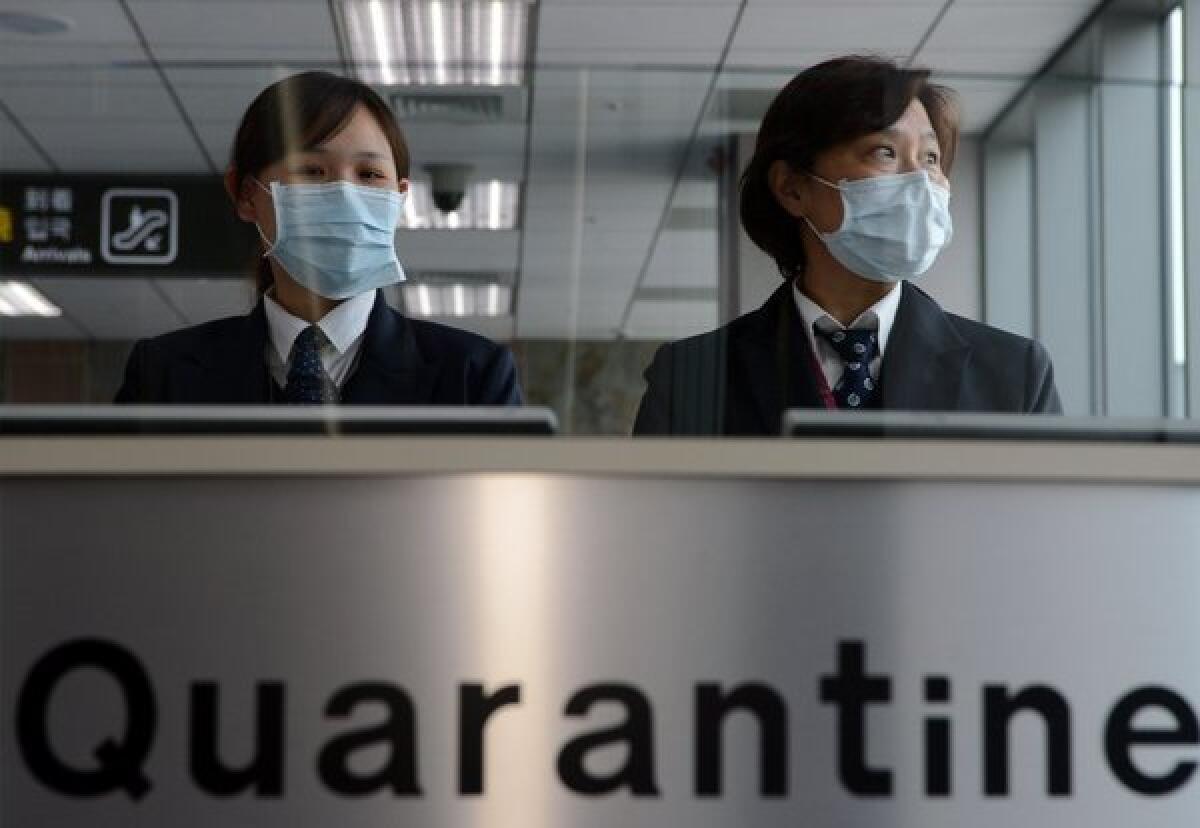14 sick, 5 dead as new bird flu moves beyond birds, threatens people

The number of people sickened by the H7N9 bird flu virus climbed to 14 on Thursday -- and the death count jumped to five -- as the Chinese Ministry of Agriculture reported that it may have detected the virus in pigeon samples at a Shanghai poultry market.
Officials in Shanghai began slaughtering birds at the market to slow spread of the disease, which so far has infected only people who come in close contact with birds and does not appear to pass from person to person.
That a place like Shanghai appears to be a center for the spread of H7N9, which wasn’t known to sicken people before this outbreak, makes sense, said Trevon Fuller, a research fellow at UCLA’s Center for Tropical Research. Fuller and colleagues recently published a study (see related items at left for Los Angeles Times coverage) identifying potential hot spots for another bird flu strain that has killed people: H5N1.
They identified Shanghai among the key locations. The reason? Its high concentration of poultry production.
“It seems that whenever there’s this spillover of bird flu to humans, it’s associated with high numbers of poultry and intensive poultry production,” Fuller said.
The more birds present that catch different strains of a virus, the more opportunities exist for those strains to combine and reassort -- creating new varieties like the novel H7N9 that could pose increased dangers to birds, animals and people.
Scientists will continue studying the outbreak to determine exactly how the virus gained the ability to sicken people, and how it spreads. According to the World Health Organization, lab experiments suggest that H7N9 does respond to antiviral medications like oseltamivir, but the drugs have not yet been used to treat any of the outbreak patients.
Reuters reported that Japan and Hong Kong had begun taking precautions, including monitoring airports and farms to combat the virus -- although those efforts were called preliminary. Taiwan also has raised its level of alert, and Vietnam has banned poultry imports from China.
The World Health Organization is providing regular updates on H7N9 bird flu.
Follow me on Twitter: @LATerynbrown







